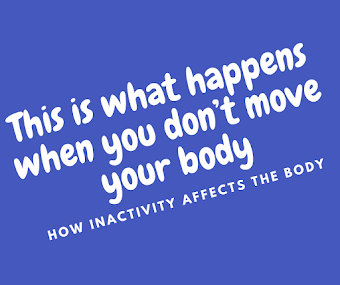A little over a year ago, something happened that stalled a LOT of people’s results.
Yes, it had to do with the lockdown …. but I’m not talking about all the stress-related eating/cooking/baking that happened.
The “something” is a LACK OF DAILY MOVEMENT.
Most of us moved a lot less (and maybe still are). We walked less, stood less, and sometimes even showered less (lol).
All of this regular daily movement is a surprising factor in 1) getting results, 2) keeping those results coming, and 3) maintaining your results. It is responsible for burning a significant amount of fuel each day!
I’ve got some solutions:
First, some background: When it comes to your calorie burn, it can be broken down into three major categories.
- BMR (basal metabolic rate) – the calories your body burns at rest, to keep you alive. This makes up about 60%-70% of your total daily burn.
- TEF (thermic effect of food) – the calories your body burns converting food to fuel. This totals about 10% of your daily burn.
- TEPA (thermic effect of physical activity) – This actually is broken into two categories: the calories you burn working out, and those that you burn while doing other daily activities – walking to the mailbox, washing dishes, engaging in hobbies, etc. This category accounts for between 10%-30% of your daily burn.
You’ll notice the last one (TEPA) encompasses a wide range! Working out helps boost that number, but so does being active in general.
For example, cranking out a 45-minute workout is GREAT! It definitely can help. But if you burn 400 calories and then sit down for the rest of the day, your overall burn won’t be very high.
PLUS … when you sit a lot, your body releases less of an important enzyme (lipoprotein lipase) that helps your body convert fat to fuel.
So, what can you do?
- Track your steps with a fitness tracker and try to get AT LEAST 5,000 a day.
- Set a timer to get up every 30 minutes to walk around for a few minutes or do chores around the house (if you’re working from home).
- Make it a point to get outside for a lunchtime walk.
- Take a 15-minute break (mid-morning & mid-afternoon) and do some light movement.
- When you do household chores, pretend your mother-in-law/nosy neighbor is coming over in 10 minutes. Work fast & furiously! Turn on some music to help keep your energy up.
- Take time every day to engage with your kids/pet/roommate/partner – chances are they also have been less active. Go for a walk, play ping pong or an active video game, throw a ball … it doesn’t matter as long as you’re MOVING.
- Look for opportunities to move your body!
At first, this can take some effort, but before long it will become a habit and you’ll notice more pep in your step AND you’ll be back to burning your pre-lockdown numbers again.
REMEMBER: It’s the little things you do consistently over time that give you the best results!
If you’re ready to make a real difference in your fitness and wanna get on the journey to amazing results click THERE ------>>>> Schedule Your Complimentary Session!
Make it a great day!
Brian Meisenburg

Comments
Post a Comment